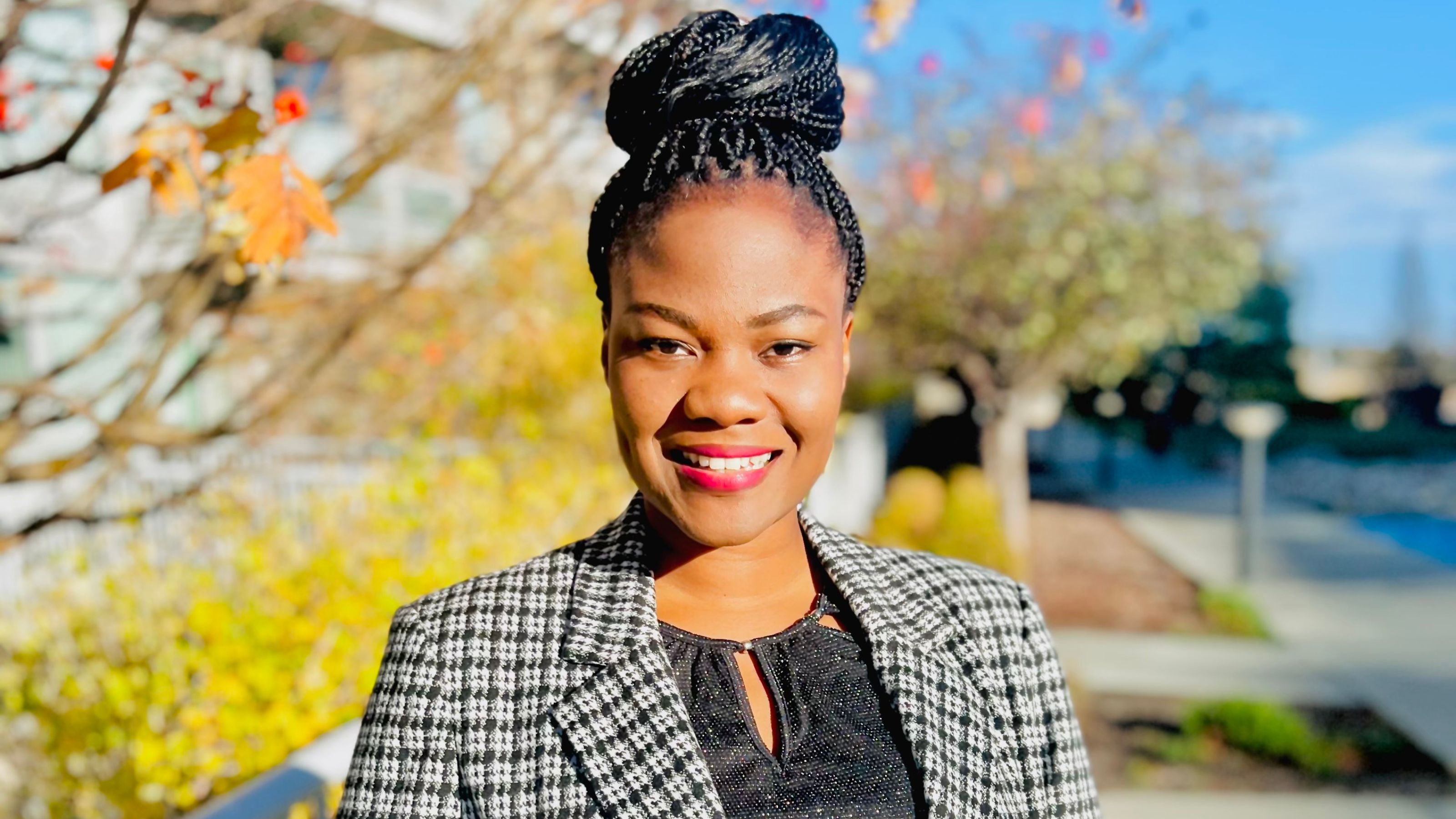Dr. Kemi Amodu is an assistant professor at the Faculty of Nursing. Her research work tries to understand how large issues like conflict, climate, migration and gender roles create health issues for women and girls in equity denied groups.
In this week’s spotlight, during the Canadian Nurses Association's National Nursing Week, Kemi shares how by engaging community members as collaborators, community-based interventions can be developed to ensure quality healthcare for vulnerable people.
How do you describe your work to people who don’t work in your field?
My research program focuses on how social factors such as gender inequities, conflict, and migration influences the lives and well-being of women and children within the global context.
What’s one big problem you want to solve through your work?
Political actors and development agencies do not adequately address health issues that impact women and girls. Conflict, climate change and political instability, combined with gender conventions in society and structural limitations in health care systems, create health access barriers for minority women around the world. My research strives to raise awareness of these issues so that governments, agencies, professionals and other frontline stakeholders can use the research knowledge to plan effective health programs for equity denied groups.
What does the word “innovation” mean to you?
Innovation to me means creating positive ideas that disrupt the current state of things, and prompts people to think and address problems in a novel way.
What’s been your biggest a-ha moment — in life or work — so far?
My most significant discovery in research has been the degree to which social location and inadequate leadership in the fundamental parts of society, such as families and local governments, can position certain groups at a disadvantage without them doing anything to deserve it, and how this can hinder the lives and health of everyday people. I have gained an appreciation of how intricate health issues become when looking at worldwide progress, fluctuating economies and climate decline. We all must take action to ensure quality healthcare for people.
How do you or your team come up with your best ideas?
I find new solutions by engaging stakeholders and people with expertise in the issues I am exploring; being aware of who is most affected and making sure their opinion is known. For example, in my doctoral research I examined reproductive health access for women displaced by conflict in Nigeria. I got valuable insights from interacting with the community, who are considered self-settled refugees within their home country, finding out what their needs are and transforming those into action domains for future community-based interventions.
What’s your favourite thing about working at the U of A?
One advantage of working here is the opportunity to collaborate with some of the most talented scholars in the world. It seems every scholar you meet is full of energy and excited about their work. It helps to maintain your motivation and creativity in order to keep progressing in your work.
Do you have a role model at the U of A? How have they influenced you?
I have been fortunate enough to receive mentorship from Dr. Bukola Salami, Professor at the Faculty of Nursing. She has provided me with mentorship in my academic studies and life in general. I learned through her the value of being your authentic self and planning towards the long term. She is a shining example of an academic who can do outstanding work while still providing support and serving communities. Her guidance led me to develop a strong work ethic and to use my research skills to support communities. My doctoral program at the Faculty of Nursing gave me the opportunity to get mentorship from various faculty members through assistantships and faculty committee work.
The U of A promises to Lead with Purpose as we build a university for tomorrow. How does your work help you lead with purpose?
I take a purposeful approach to my work and try to identify who will be affected by the knowledge I am generating, striving that my research has a positive impact on the lives of vulnerable people, contributing to women's health through collaboration.
What’s next for you? Do you have any new projects on the horizon?
Currently, I am working on several research ideas. Investigating the maternal health, birth outcomes and experience of Black women in Alberta is my new focus.
About Kemi
Dr. Kemi Amodu has the position of Assistant Professor at the Faculty of Nursing of the University of Alberta. She holds a PhD in Nursing from the Faculty of Nursing, University of Alberta and completed a postdoctoral fellowship at the School of Public Health Sciences SPHS, at the University of Waterloo. Her area of interest is in the health of women and children, in particular those whose cultural beliefs and social conditions limit their access to proper maternal care. She is studying the social factors that affect the ability of vulnerable women to access maternal and reproductive healthcare. The research investigates the disparities in access to healthcare for women and how this is associated with political and structural angles. She was awarded a 2022 Social Sciences and Humanities Research Grant (SSHRC) Insight Development grant to study how families experiencing conflict induced displacement change their gender and family relations once resettled, and how these adjustments to family dynamics and gender authority affect women's socioeconomic status and well-being.
Innovator Spotlight is a series that introduces you to a faculty or staff member whose big ideas are making a big difference.
Do you know someone who’s breaking boundaries at the U of A? (Maybe it’s you!) We’re interested in hearing from people who are creating new solutions to make our world better. We want to feature people working across all disciplines, whether they’re championing bold ways of thinking, driving discovery or translating insights from the lab into the market.
Get in touch at blog@ualberta.ca.

